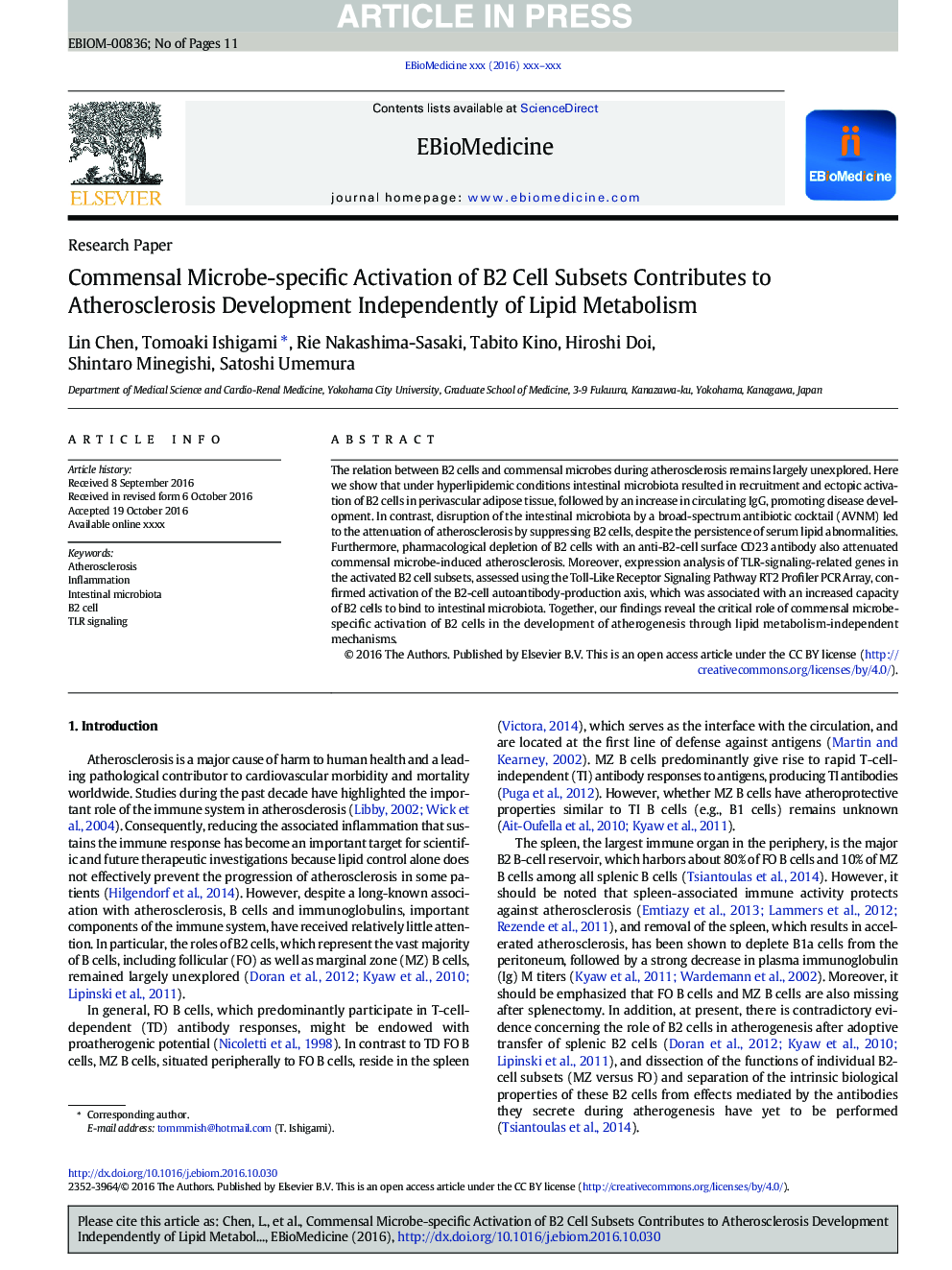| Article ID | Journal | Published Year | Pages | File Type |
|---|---|---|---|---|
| 8439077 | EBioMedicine | 2016 | 11 Pages |
Abstract
Under hyperlipidemic condition, signals driven by the intestinal microbiota via TLRs signaling pathway cause B2 cells in spleen to become functionally active and activated B cells then modify responses such as antigen presentation (upregulation of costimulatory molecules-MHC class II molecules) and antibody production (generation of active antibodies IgG and IgG3), thereby contributing to the development of atherosclerosis. On the other hand, intestinal microbiota also resulted in recruitment and ectopic activation of B2 cells via TLRs signaling pathway in perivascular adipose tissue (PVAT) at the same time, and, subsequently, an increase in circulating IgG, led to the enhanced disease development.189
Related Topics
Life Sciences
Biochemistry, Genetics and Molecular Biology
Cancer Research
Authors
Lin Chen, Tomoaki Ishigami, Rie Nakashima-Sasaki, Tabito Kino, Hiroshi Doi, Shintaro Minegishi, Satoshi Umemura,
